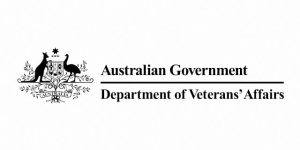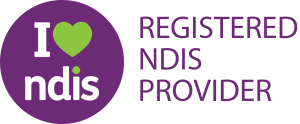Department of Veterans' Affairs Services (DVA)
About Us
“DVA - Department of Veterans' Affairs Services in Queensland”
As a veteran seeking disability support, there are two main avenues available to access assistance: the Department of Veterans’ Affairs (DVA) or the National Disability Insurance Scheme (NDIS). The specific option you choose will depend on your eligibility for funding and personal preferences.
Both the DVA and NDIS offer a wide range of supports, services, and funding to individuals with disabilities who have served in the armed forces. However, it’s important to note that the DVA and NDIS may fund different things at different times. Therefore, it is beneficial to be aware of which agency to contact for the specific support you require.
To ensure a smoother experience navigating the system and obtaining the necessary disability support, it is advisable for veterans and their families to familiarize themselves with the appropriate channels to access assistance.
About Us
What is DVA?

DVA Services offers
DVA Online Services offers Ex-Service Organisations, health, home care and transport service providers the choice of dealing with DVA online.
DVA versus NDIS: A Comparison

In Australia, individuals who have served in the armed forces, as well as some war widows and widowers, can access support through the Department of Veterans’ Affairs (DVA). The DVA provides information, services, and supports to all veterans, regardless of whether they have a disability. However, specific eligibility criteria apply to disability supports offered by the DVA.
Those who meet the eligibility requirements for DVA disability support may also qualify for assistance through the National Disability Insurance Scheme (NDIS).
Although services and supports can be funded by both the DVA and the NDIS, it’s important to note that double-dipping on funding from one source is not permitted. For instance, if the NDIS already funds one hour of support work for you each day, the DVA will not provide funding for an additional hour of the same support.
Nonetheless, it’s your prerogative to decide whether to receive that hour of support through the DVA or the NDIS. Each system serves different purposes and specializes in different areas, which gives individuals the autonomy to choose the system that best suits their needs and preferences.
DVA instead of NDIS

Veterans can receive DVA disability support while awaiting the processing of their NDIS application, ensuring that they have the necessary support during this waiting period until they can secure NDIS funding.
In addition, certain individuals who do not meet the NDIS eligibility criteria can still receive disability support from the DVA. For instance, veterans who are over 65 and did not apply for NDIS prior to reaching the age cutoff.
Moreover, the DVA provides funding for certain supplementary services that are not covered by the NDIS, particularly in the realm of healthcare.
It is important to note that the NDIS does not allocate funds for healthcare or general mental health support unless it directly relates to a person’s disability. In such cases, the responsibility falls on the healthcare system. However, the DVA does provide funding for some of these mainstream health services, and veterans can have their healthcare expenses, including dentistry, covered with a DVA card.
Furthermore, it is worth mentioning that certain DVA services have funding limits, which may be lower than the funding that can be obtained through an NDIS plan, depending on individual circumstances.
Where should you start?
As the way DVA services and the NDIS interact can be very different in each case, it is difficult to know who you should contact about services if you currently don’t receive any, if you want to change the services you receive or if you need additional support.
The DVA suggests calling 1800 VETERAN (1800 838 372) to speak to someone at the DVA in each of these situations, so they can connect you with your next point of contact.
